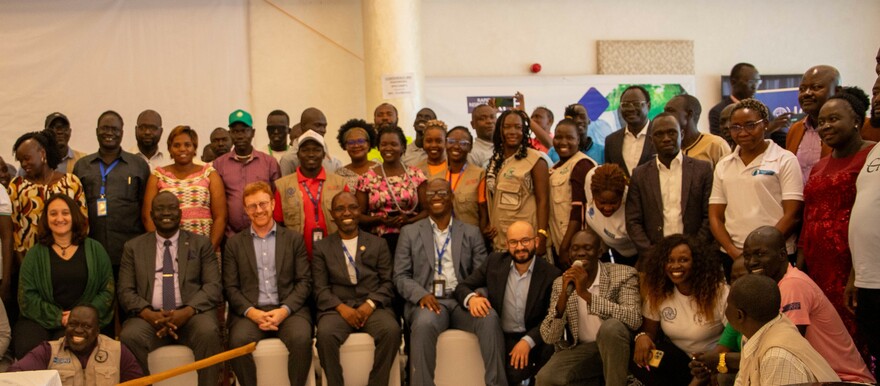The International Organization for Migration (IOM) on Wednesday celebrated a decade of its Rapid Response Fund (RRF) program, providing crucial rapid humanitarian assistance to individuals and communities affected by crises in South Sudan and the Abyei Administrative Area.
Since 2010, the U.S. Agency for International Development (USAID) has collaborated with the International Organization for Migration (IOM) through its U.S. Embassy in Juba. This partnership supports rapid humanitarian interventions for 17 million crisis-affected individuals across the country.
The IOM’s Rapid Response and Recovery (RRF) Program swiftly addresses health, nutrition, agriculture, food security, protection, shelter, settlements, water, sanitation, hygiene (WASH), and humanitarian coordination. This involves providing three-month emergency support to local partners for effective implementation.
“The program seeks to save lives and reduce suffering among populations in emergency-impacted areas,” stated John McCue, Acting Chief of Mission at IOM South Sudan. He made these remark during a ceremony organized to celebrate the achievements of the IOM’s Rapid Response Fund program on November 8, 2023, in Juba.
He emphasized the collaborative nature of the initiative, acknowledging, “We are cognizant that we cannot do this without the support of partners. That is why the Rapid Response Fund works with national and international non-governmental organizations to swiftly provide humanitarian response to the vulnerable populations across South Sudan.”
Over the past decade, the IOM through the RRF programme has built the capacity of over 280 implementing partners (local and international NGOs) to swiftly implement specific emergency response interventions that meet immediate needs of people affected by new aspects of the ongoing crisis.
“While we value the tremendous work of RRF over the past decade, all of us in this room agree that it is a tragedy that the humanitarian crisis in South Sudan has endured for so long and has indeed worsened,” expressed Michaeel J. Adler, Ambassador of the United States to South Sudan. He acknowledged the resilience of numerous courageous individuals who have stepped forward to assist in humanitarian efforts.
However, he also conveyed the challenging reality, stating, “While we remain committed worldwide, demands on humanitarian funds will necessitate significant budget reduction here in South Sudan starting this fiscal year.”
To address this situation, Ambassador Adler called on the Transitional Government to play a more active role in supporting humanitarian response. He emphasized the need for increased use of public revenue to alleviate the financial burden and reduce the costs and risks of aid delivery. This includes practical measures such as the removal of checkpoints on roads and a reduction in bureaucratic impediments and illicit fees imposed upon international and national non-governmental organizations.
“The community of NGOs at the local level are helping to support their communities, and that is why I enthusiastically welcome the focus on the localization agenda,” stated Ambassador Michaeel J. Adler.
Local non-governmental organizations (NGOs), selected in close coordination with IOM and local communities, have actively reached out to internally displaced persons (IDPs), vulnerable migrants, returnees, host communities, and others requiring direct life-saving assistance. The Mid-Term Review of the RRF in 2022 highlighted the program’s effectiveness in addressing the acute needs of the target populations, resulting in a significant impact on their health, livelihoods, resilience, and overall well-being.
Florence Paul, Policy and Partnership Lead for Community Initiative for Development Organization (CIDO) in South Sudan, expressed the positive outcomes of RRF’s support: “My organization has greatly benefited from both the technical and financial support RRF has given us over the years.” As a result, CIDO has reached over 68,000 people in need, providing health, Water, Sanitation and Hygiene (WASH), Shelter, Non-food Items interventions, and protection services. These efforts were conducted as both static and mobile responders across all six states of South Sudan where CIDO operates.
The localization agenda is a key strategy for RRF, facilitating cost-effective emergency responses to situations requiring urgent humanitarian intervention in South Sudan. Notably, over 95% of RRF’s implementing partners are national non-governmental organizations, underscoring the emphasis on leveraging local expertise and resources in addressing critical humanitarian needs.




